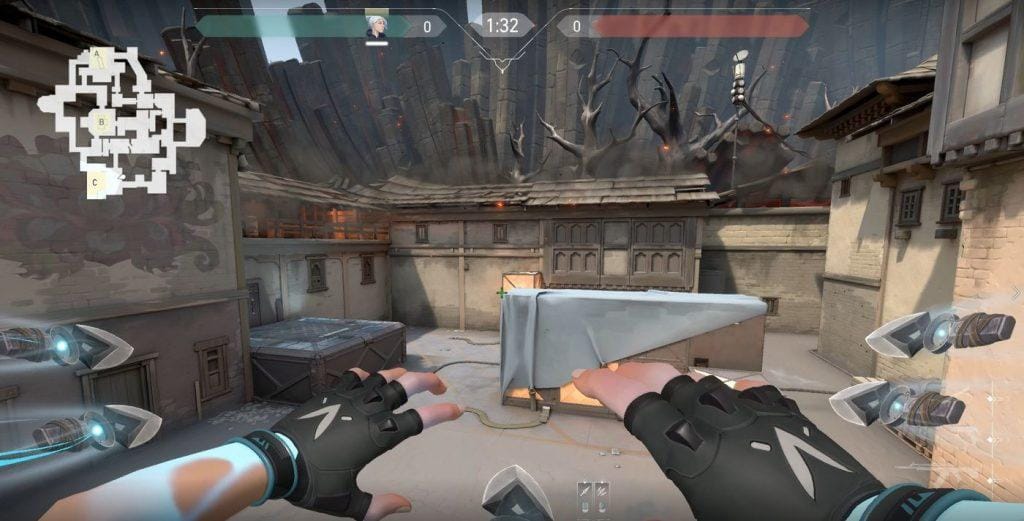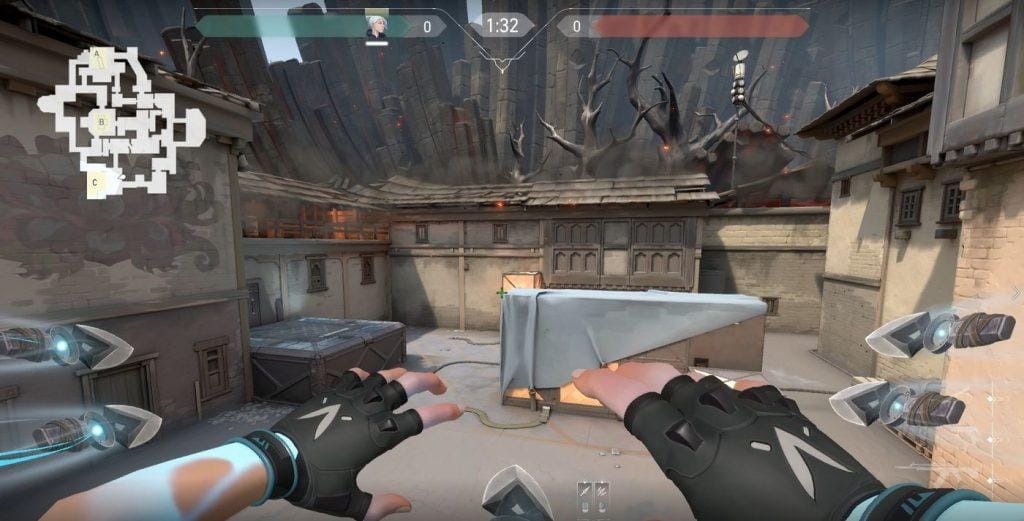


Valorant is a game where skills and strategy intertwine and one which demands more than quick reflexes and accurate shooting skills to win. The skill? Game sense. This skill is what distinguishes average players from exceptional ones.
Personally, as a coach in the Valorant eSports scene, I have witnessed how refining game sense transforms players from mere participants to complete masters of the game. This guide will cover the top 10 tips to improve game sense in Valorant.
In Valorant, game sense is an intuitive understanding of the game's dynamics. Valorant players with good game sense predict what will happen next, not just react. Your game sense dictates how well you can control the game's flow and make smart decisions that lead to victory.
Understanding the map is fundamental in Valorant. It involves knowing the layout and using this knowledge to position yourself advantageously. Key map areas include choke points, high-ground advantages, hiding spots, and sight lines.
Proper positioning allows you to shoot from a good spot, control engagements, support teammates, and retreat safely. The strategic choice of location will enable you to exert pressure on the enemy and control the game's flow.
To improve your map knowledge, start by studying each Valorant map in detail. Learn the common paths players take, the spots where engagements frequently occur, and where players are likely to plant or defuse the Spike. Pay attention to how agents use their abilities in various parts of the map. For instance, knowing where a Sage might typically wall off or where a Raze might use her explosives can help you anticipate and counter these moves.
The right position can mean the difference between controlling a game and being caught off guard. To improve this, study the maps and learn common player strategies.
Predicting what your opponents will do next is a skill that comes from understanding player psychology and common game strategies. It's about noticing patterns and using them to anticipate the enemy's next move. Improve this skill by observing how opponents play in different situations.
Flanking at the right moment can change the game's outcome. It involves understanding when the enemy is distracted and seizing that opportunity. Improving this requires a good sense of timing and a deep understanding of the game's rhythm. It means being constantly aware of where your teammates and opponents are positioned and what objectives they might be focusing on.
Additionally, understanding the timing of enemy abilities and their cooldowns can give you a significant advantage. If you know an enemy has just used a crucial ability, it might be the perfect time to initiate a flank, as they are momentarily weaker.
However, successful flanking also requires discretion and patience. Sometimes, you need to lurk around and spend time gathering information, or creating pressure on the enemy team, forcing them to divert resources or change their strategy. In some cases, the mere presence of a flanker can be enough to disrupt the enemy's plans.
Rotating effectively means moving to the right place at the right time. It's a skill that combines understanding the game's overall situation with the ability to anticipate enemy moves. Good rotations often lead to successful defenses or attacks.
To rotate effectively, you need a comprehensive understanding of the game's current state. It includes knowing the positions of your teammates and opponents, the status of objectives (like the Spike), and the time left in the round. A well-timed rotation can catch your opponents off guard, provide backup to a teammate in need, or secure a critical site.
One crucial aspect of rotating is understanding when not to rotate. Over-rotating or rotating too early can leave your team vulnerable and expose key map areas. It's essential to balance the need to support your team with the necessity of holding crucial map control points.
Valorant competitive is ultimately about winning rounds, not just accumulating kills. Focusing too much on kills can lead to risky plays and missed opportunities. Instead, prioritize objectives and strategies that lead to victories.
In Valorant, sound is a crucial element. It can give you information about enemy positions and movements. Learning to interpret these audio cues correctly can provide a tactical advantage. Pay attention to sounds like footsteps, gunshots, and ability cues to make better decisions.
Using your agent's abilities strategically is key. Offensive abilities, like Phoenix's Curveball or Raze's Paint Shells, are great for taking control of areas or flushing out enemies from their positions. Defensive abilities, such as Sage's Barrier Orb or Cypher's Trapwire, are crucial in controlling the map and protecting your team.
Balancing these abilities requires understanding your role utility in the team and the current needs of the game. For example, if your team is defending a planted Spike, using your abilities to delay the enemy's defuse attempt can be more valuable than seeking aggressive engagements. Conversely, when attacking, using your abilities to create a safe passage or to dislodge enemies from strong positions can be crucial.
Effective communication enhances game sense. It's about coordinating with your team to control the game's pace and strategy. Good communication improves teamwork and can significantly impact your game's outcome.
Valorant is a dynamic game, and being adaptable is crucial. It involves making quick and effective decisions under pressure. This skill is honed through experience and a deep understanding of the game's mechanics.
Getting better at Valorant involves learning from your mistakes. VOD reviews can help you understand what went wrong and how to avoid similar mistakes in the future. This practice is essential for continuous improvement and climbing the ranks.
Complete game sense in Valorant is a multifaceted skill that combines strategy, awareness, and adaptability. By focusing on these 10 tips and tricks from Valorant pros, gamers can significantly improve their gameplay. Remember, mastering game sense takes time and practice, but the rewards are well worth the effort.